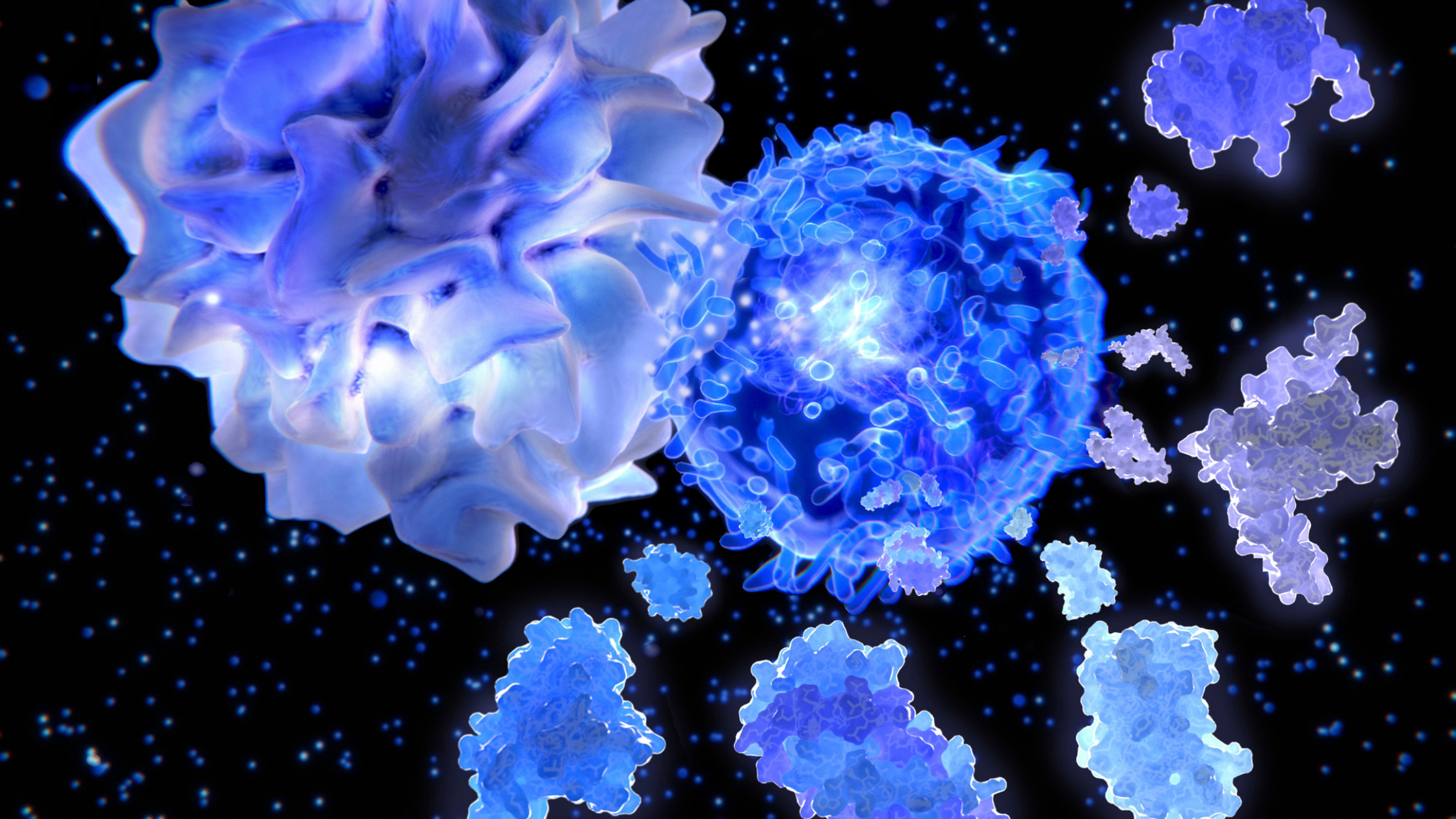What Is Hashimoto’s Disease? (And When You Should Be Concerned)
Written by TYE Medical on Oct 4th 2021
You’re probably familiar with hypothyroidism, but you might not realize that Hashimoto’s disease is the most common thyroid disorder in the U.S. The term “thyroiditis” refers to inflammation of the thyroid gland, and Hashimoto’s is also known as autoimmune hypothyroidism and chronic lymphocytic thyroiditis.
It’s an autoimmune disorder in which your immune cells attack rather than defend healthy tissues, specifically your thyroid. The unwarranted assault against this critically important gland results in inflammation and poor function.
But why should you care?
Thyroid hormones are vital to bodily processes, especially your metabolism, which affects more than just your waistline. It controls how your body processes and uses energy, regulates heart rate, breathing, cholesterol levels, blood sugar, and a host of other functions.
If you’re experiencing underactive thyroid symptoms or have noticed a dramatic slowdown in your body, it’s best to be proactive and gain understanding about this not-so-uncommon condition. This article offers valuable insights concerning symptoms, causes, risk factors, and treatments.
How Hashimoto’s Disease Causes Hypothyroidism

When your immune system attacks and inflames your thyroid, it can eventually damage the gland to the point of hindering or halting vital hormone production. That’s when hypothyroid symptoms begin to appear. The inflammation can become so severe that the gland swells, protruding into the neck until it’s visible from the outside. This is called a goiter and is a hallmark of Hashimoto’s thyroiditis, although not everyone develops this symptom.
But it’s important to realize that once autoimmune thyroiditis damages your gland and affects thyroid hormone production, there is no going back. The condition has caused a permanent but treatable thyroid disorder.
Signs and Symptoms of Hashimoto’s
As with most conditions, it’s best to treat Hashimoto’s disease before developing more severe symptoms that affect bodily function. Some people can become so weak and fatigued from low thyroid hormones that they can’t perform simple routine tasks. And while the condition is very treatable, it can take weeks, months, or longer for thyroid hormone therapies to take effect and restore health. It’s best to seek treatment early to avoid additional stress on your body or potential long-term damage.
Aside from developing a goiter, Hashimoto’s disease typically progresses to include symptoms of hypothyroidism once thyroid hormone production declines. Once the condition affects your bodily functions, you might notice some or many of the following symptoms:
- Weight gain
- Fatigue
- Difficulty concentrating
- Increased cold sensitivity
- Constipation
- Dry skin, nails, and hair
- Hair loss
- Muscle soreness or weakness
- Reduced exercise tolerance
- Drowsiness (sleepiness)
- Heavier periods
- Depression
- Irritability
- Memory loss
- Decreased libido
People with hypothyroidism related to Hashimoto’s disease don’t experience the same symptoms in the same way. For some, their more severe symptoms could be fatigue and weakness, while others are plagued with hair loss and weight gain, in addition to lesser symptoms.
Your TSH (thyroid-stimulating hormone) level indicates the severity of your condition. The higher the TSH, the worse your underactive thyroid symptoms. If your TSH levels are only slightly elevated, you may not even notice symptoms even though blood tests detect thyroid peroxidase (TPO) antibodies. But with Hashimoto’s, eventually, your hormone levels (T4 or T3) decline, driving up your TSH. As your body continues to fall short in distributing the proper level of hormones, symptoms will appear.
Risk Factors for an Autoimmune-Related Thyroid Disorder
You’re at a higher risk for developing Hashimoto’s disease if you:
- Are a woman in middle age
- Have family members with autoimmune disorders
- Have other autoimmune diseases (rheumatoid arthritis, lupus, or type 1 diabetes)
- Have been exposed to excessive environmental radiation levels
What Causes Hashimoto’s Disease?

This condition develops when your immune system malfunctions and attacks your thyroid tissues. These faulty immune cells are called lymphocytes, and they invade your gland to destroy tissues, cells, and blood vessels. While under attack, your thyroid doesn’t produce adequate hormones and can even become inflamed and swollen, forming a goiter.
Eventually, the damage to your thyroid results in hypothyroidism, as your gland is no longer capable of hormone production. Scientists don’t understand why your immune system attacks your thyroid in the first place, but researchers continue to examine emerging theories.
What Is Autoimmunity?
With autoimmune disease, your immune system can’t tell the difference between your body’s cells and foreign, hostile cells. Rather than attacking invading bacteria or viruses, it launches an assault against bodily tissues, as with Hashimoto’s disease.
There are over 100 different types of autoimmune disorders . Specific diseases refer to the area being damaged. A few examples include:
Psoriasis
This condition primarily affects your skin, causing thick, scaly patches.
Rheumatoid arthritis
A type of arthritis that attacks healthy joints.
Lupus
This disease damages various areas of the body, including skin, joints, and organs.
Psoriatic arthritis
A condition that affects those with psoriasis, causing joint pain and deterioration.
Thyroid diseases
Other than Hashimoto’s, autoimmunity can also trigger hyperthyroidism (or overactive thyroid), known as Graves Disease.
Your symptoms will depend on the type of autoimmune disorder you have, but here are some indicators common to many autoimmune diseases:
- Joint pain and swelling
- Fatigue
- Digestive problems or abdominal pain
- Skin problems
- Recurring fever
- Swollen glands
If you struggle with these symptoms, it’s best to talk with your doctor and consider testing options. Since science hasn’t determined what causes autoimmune disorders, there is no known way to prevent Hashimoto’s disease and autoimmune hypothyroidism. Your best defense is early detection.
However, recent studies have found connections between autoimmunity and inflammation. Adopting an anti-inflammatory diet might be helpful for some people, but not necessarily a cure or a replacement for doctor’s care.
Diagnosing Hashimoto’s Disease

When it comes to diagnosing an autoimmune condition, there isn’t one simple test to take. A variety of blood tests check for antibodies that correspond to specific types of autoimmunity. Your doctor will evaluate these blood tests, consider your symptoms, and even biopsy tissues to make a diagnosis.
The most common blood tests used to diagnose autoimmune hypothyroidism include:
Anti-thyroid Antibodies (ATA) Tests
These include the thyroid peroxidase antibody test (or microsomal antibody test) and the anti-thyroglobulin antibody test. When your immune system attacks your thyroid (as with Hashimoto’s disease), your body creates antibodies. The presence of antibodies indicates an autoimmune thyroid condition.
Thyroid-stimulating Hormone (TSH) Test
This is one of several thyroid function tests indicating how Hashimoto’s disease has affected hormone production.
Your pituitary gland produces TSH to galvanize your thyroid into action, literally stimulating the production of T3 and T4 thyroid hormones. Before hormones drop too low, the pituitary gland releases more TSH to boost production and release.
So, if your TSH levels are high, it means your pituitary gland senses low levels of thyroid hormones and is pushing your thyroid to make more. If your hormone levels test low, that means your thyroid can’t keep up with production. High TSH with low T4 or T3 indicates hypothyroidism. And if you have anti-thyroid antibodies, you have autoimmune hypothyroidism.
The most challenging part about diagnosing hypothyroidism is that normal TSH ranges vary by individual. What is considered “normal” levels according to testing protocols might not be ideal for your body. In these cases, you might experience underactive thyroid symptoms with only a slight elevation in TSH. Be sure to discuss your symptoms in detail with your doctor to help with a diagnosis.
Free T4 Test
T4, or thyroxine, is the active thyroid hormone in your blood, and free T4 is what’s in your bloodstream and available to your tissues. If your free T4 comes back low, it suggests a malfunctioning thyroid, whether your TSH is high or not. Measuring free T4 is another way to diagnose hypothyroidism, and in combination with ATA tests (for thyroid antibodies), it can suggest your hypothyroidism is related to Hashimoto’s disease.
Thyroid Hormone Replacement Therapy
Hormone replacement is the only treatment for Hashimoto’s disease but it is highly effective. If your thyroid hormones remain at normal levels and only elevated anti-thyroid antibodies are detected, then no treatment is needed. Currently, no cure for autoimmune disorders exists, and only symptoms are treated.
Once you develop hypothyroid symptoms and your thyroid hormones are affected, you can receive thyroid hormone replacement. The most prescribed treatment is Levothyroxine (synthetic T4). It’s an inexpensive and effective oral treatment that normalizes T4 when taken at the proper dosage. Even if your T3 levels are low, you can see symptoms improve with enough T4 available for conversion to T3.
But it can take four to eight weeks to start feeling better after starting levothyroxine.
Hashimoto’s Disease and Bladder Leaks

Since no one knows why your immune system goes on the offense against your thyroid, there is no way to prevent Hashimoto’s or autoimmune hypothyroidism. Instead, you can be proactive in recognizing the risk factors and symptoms. For additional tips, read our article, Is Your Thyroid Happy? How to Optimize Thyroid Function as You Age .
Don’t hesitate to ask for a thyroid screening if anyone in your family has an autoimmune or thyroid disorder. Even you’re not symptomatic, having a baseline for your “normal” can help your doctor know when a lab result is abnormal for you.
Hypothyroid symptoms like constipation and weight gain can also cause a leaky bladder. And if you’re experiencing fluctuations in estrogen during mid-life, it can intensify your incontinence.
Whether you’re experiencing light or heavier leaks, we have discreet, premium, and cost-effective products to keep you comfortable and dry.


